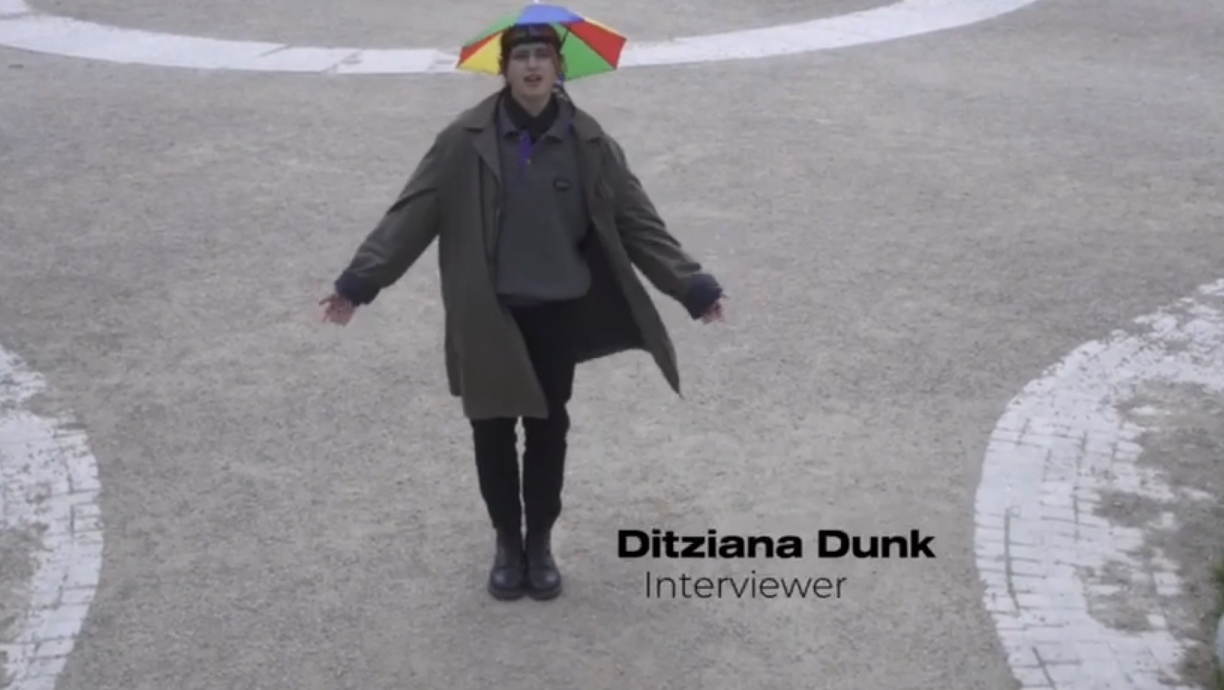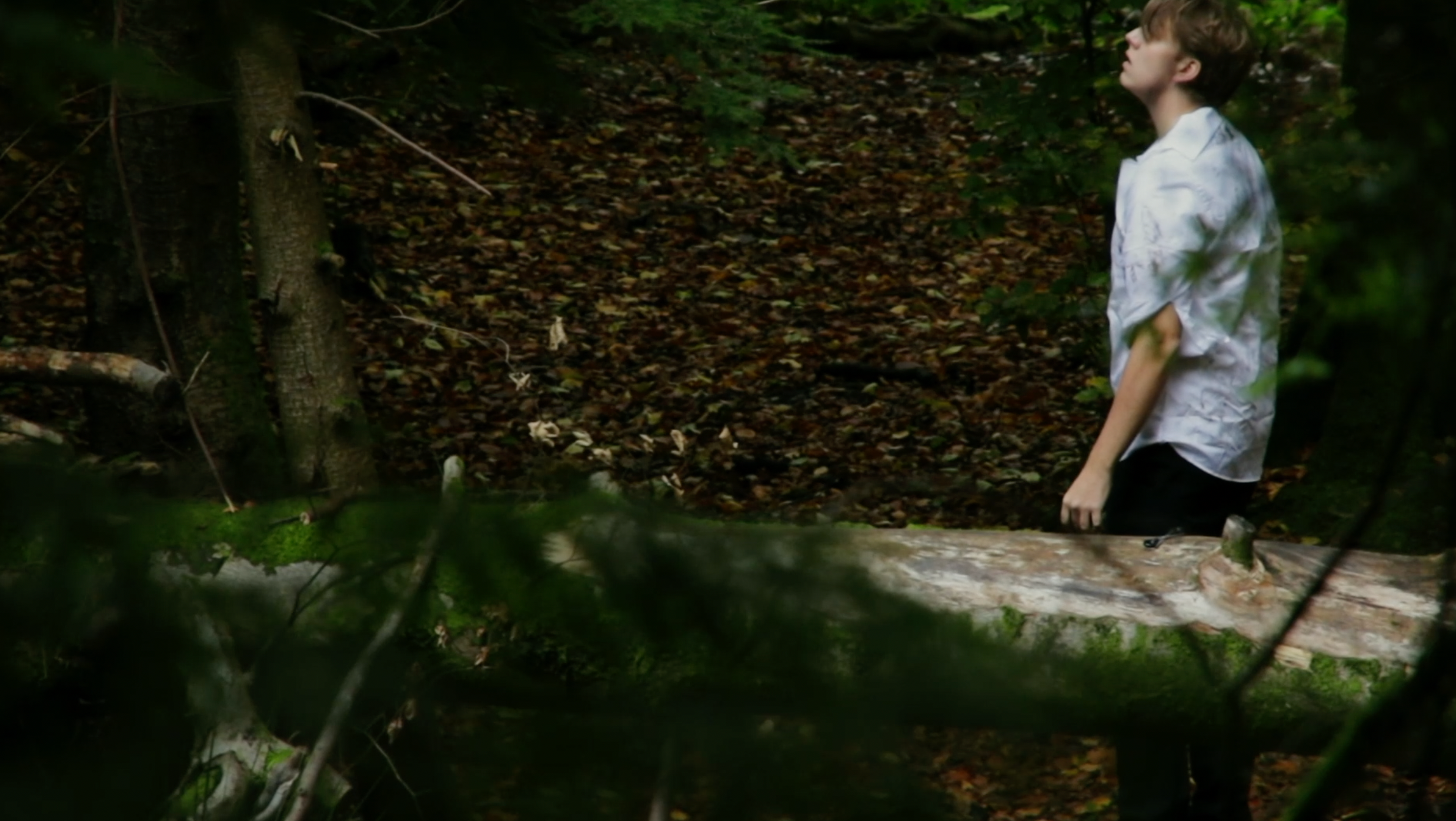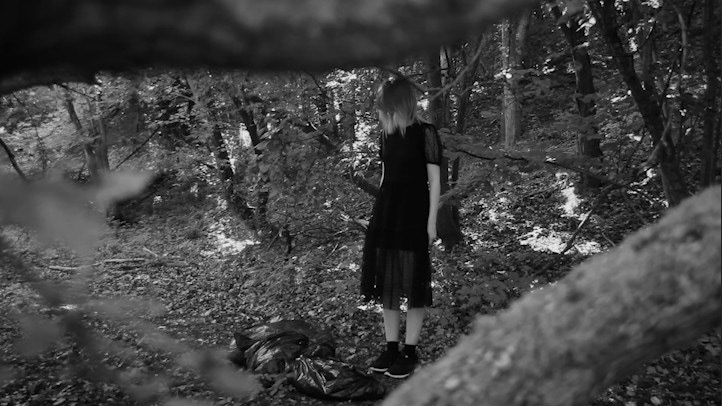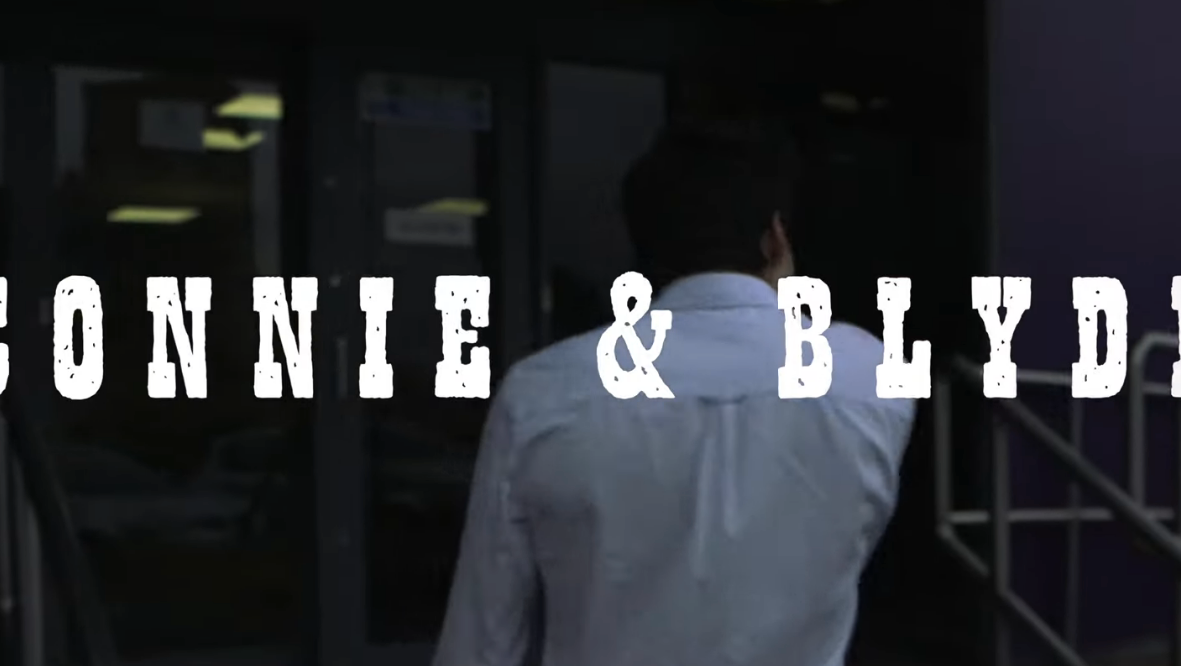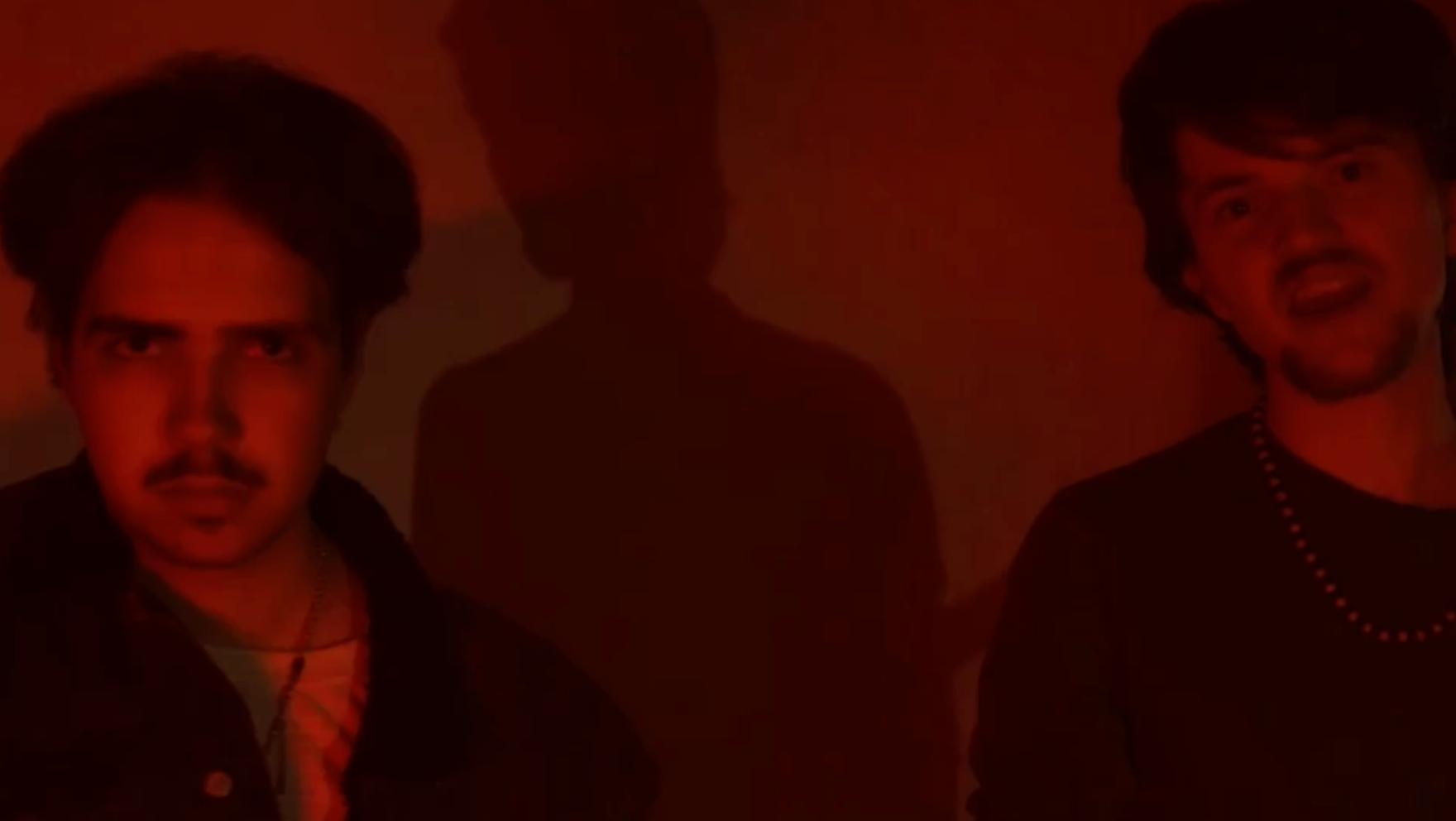For uni, I made a documentary about how politics affect certain video games.
Exploration Evaluation
How do politics affect narrative-driven video games?
When we were set the brief to make a documentary, my mind instantly went to politics. I had been playing a lot of Skyrim the night before and wondered if I could combine the two - I absolutely could. Originally, I had planned to work with Sam Monaghan and Harry King, mixing politics with the Call of Duty series, Red Dead Redemption and, of course, Skyrim. However, we ended up working alone due to the amount of content. I decided on my question, “How do politics affect narrative-driven video games,” and would argue that they have a huge influence on these games in two ways: the use of propaganda and the use of politics embedded into the game’s narrative. I intended for my audience to question whether their favourite video game impacted their political beliefs and views.
I chose this question specifically as the topic gets heavily overlooked: there is not enough research on it. In all the theses I read, they all expressed the same problem; there was not enough academic research on this. However, despite this, I knew I could still use it as a limitation as to how valid my claim was. After doing A Level film, I knew all about different readings of narratives, which could also be used as a limitation to this claim.
I asked myself, what impact does politics in video games have on society? Propaganda can be persuasive and shift perspectives, especially in video games where the audience always has to engage in it. I looked into military-themed games and found that in Call of Duty: Cold War, nothing bad was said about the US military at all, evident when the player arrives at the battlefronts of Đà Nẵng. The player does not at any point shoot civilians, unlike what happened in real life at Mỹ Lai (Nguyen, N.D). This selective portrayal resembles Cold War-era propaganda, omitting darker aspects of history. Without prior knowledge, players might view this one-sided narrative as factual.
I researched racism in Skyrim and came across a theory that had never crossed my mind before: the game mechanics themselves are racist (Flusk, 2023). This thesis states that the Redguard race (the only black race) is built off racial stereotypes and disguised behind the fact that the game is fantasy, as this race is seen to be barbaric and unintelligent. I did not know if I, as a white person, would be qualified to talk about this, and I questioned the ethics behind this. I have never experienced racial discrimination, so could I truly talk about “black existence controlled by a white creator?” I decided, despite not experiencing it myself, to use Flusk’s theory in the documentary, as I believed it to be correct.
I created the prototype with only the context in mind, I had not had much time to do my research due to other projects and thought making an introduction would still get me the feedback I wanted. I was worried it would feel more like a video essay, and it did. The feedback I received was that it did feel like a video essay and sort of strayed away from the video essay elements. This is also when we, as a group, realised that three games in one would not work, as it was difficult to blend them without it feeling like either a video essay or three separate documentaries. This made sense to me, and I took on the feedback, so decided to do a separate documentary to my group.
I researched a little into documentary, as I was already familiar with it from my studies at A Level. As defined by John Grierson, a documentary is the creative treatment of actuality (Grierson, 1939). The genre of documentary, like any other genre, has many different styles, and I needed to decide on a style for my documentary. I knew I wanted to be involved, so observational documentary, like Asif Kapadia, was not an option. Expository and participatory were my other two choices, as I knew I wanted to be physically in the documentary, similar to Michael Moore, but I also wanted to have the “all-knowing, god-like” voice from an expository documentary (Aldredge, 2022). This way, it would be more personal, and I would be able to complete my intention of making the audience question whether developers were purposely trying to push their beliefs onto video game players or not. If I acted as if the audience were going on this journey with me, then they were more likely to listen to my points, instead of me just having clips of the video game with a voiceover on top, which would be disengaging. I decided to switch between a video of me talking to the camera in real life and animated gameplay, as this switch would be drastic enough to keep the audience in active engagement. This research helped me develop my documentary, without it, I would not know what style to replicate and how to make it more personal to the audience.
The documentary was to have three parts: propaganda (with a focus on Call of Duty: Cold War), politics embedded into the narrative (Skyrim) and whether this claim is valid. I decided that I wanted my intention to be a more unbiased documentary, as whilst doing my research, I realised that political influence on video games wasn’t necessarily intentional, and at the end of the day, everything is up to interpretation, and everyone will have a different interpretation on something due to the context they read it with (Ortu, 2013).
I chose my research with the socio-politic context in mind. I researched two theses about general politics in video games and three theses about Skyrim. In my findings, I noted that video games are the most powerful form of propaganda because the audience always has active engagement in the narrative (Erad, 2018).
So what if I made the audience have an active engagement in my narrative by involving them? I created a survey and posted it on the r/Skyrim Reddit and TikTok, gaining almost 1,000 responses. The survey was to see if people could make any correlations between Skyrim and real-life political events and what their political beliefs were. Whilst in the end, my research tended to stray a bit from this, it was still useful to my research. There were lots of correlations, with some even saying the Stormcloaks had the same rising to power that the Nazis did (unknown, 2024). The fact that these players could make these correlations gave me more to research and was very helpful in guiding my research.
The filming of the documentary went well. I had previously printed out my script and chosen what clips to include where and whether I wanted this section to be in real life or not. I filmed all the clips from Skyrim myself, using software I had never used before called OBS. As I did not own the other games I used, I used clips I found off YouTube and credited them in the documentary. I wanted to include a re-enactment of Skyrim, using a green screen and handmade props to create comedic value for engagement, but due to time restraints and my poor time management, I could not. Not only would this have up my production value, but I also feel it would keep the audience engaged. Despite the feedback I got on my prototype feeling like a video essay, I think it still had video essay elements to it. Some of the sounds I had previously recorded peaked a lot, so I had to rerecord, but this ended up sounding different to the other audio. I also did not speak very clearly but ran out of time to rerecord myself. A lot of the script had to be omitted from the documentary too, as I had gone past the time limit.
I was unsure about how to make this more like a documentary, hence why I included myself in it, so it would feel more like a participatory documentary. I originally decided on a lack of interviews, because I felt like they would not fit with the documentary style I was going for. However, I think this is the wrong choice. I think it would be more engaging for the audience to hear other people’s opinions first-hand, rather than me reading my interpretations of other people’s theses.
I originally wanted to include complex motion graphics, but due to not being incredibly confident with editing motion graphics, I settled for simpler graphics. Next time, I would take the time to learn these motion graphics, especially to make the audience more engaged with my documentary.
I feel as if I did hit my intention and get other people to think about whether video games are political. I screened my documentary with my friends, who are all gamers, and they told me it made them think again about what themes and ideologies their favourite video games contain. I would have loved the chance to screen a beta version of my prototype to my peers at Screenology because some of them are not interested in video games, however, I did not get the opportunity to due to it being Christmas break.
Engaging in research has impacted my work, as it not only brought a new perspective to light for me but also helped me make more informed decisions about what to include in my documentary. I have done research for all my projects this year so far, and it has helped me improve massively in the production value of my work. It has also made my work more engaging as I can select which information supports or opposes my point more carefully, making me sound intelligent and informed. I will research for my next project.
I enjoyed researching for this project, and I believe that I have created a documentary with a well-informed, balanced argument.
BIBLIOGRAPHY:
Aldredge, J. (2022). The 6 Types of Documentary.
Bjørkelo, K. (2022, September). “Elves are Jews with Pointy Ears and Gay Magic”: White Nationalist Readings of The Elder Scrolls V: Skyrim.
Cooper, V. (2016). Fantasies of the North: Medievalism and Identity in Skyrim.
Erad, D. (2018). Video Games as a Propaganda Tool: Representation of the USA (p. 81).
Flusk, T. (2023). The Intersection of Systemic Racism and Technology and the Consequences for Video Games (pp. 60–90).
Grierson, J. (1939). Institution of the National Film Board of Canada.
Levi-Strauss, C. (1955). The Structural Study of Myth.
Nguyen, A.-T. (n.d.). Memory of War: Remembering Hollywood’s Vietnam War in Call of Duty: Black Ops.
Nichols, B. (2024). Introduction to Documentary (Fourth).
Piero, M. (2021). Being Dragonborn: Critical Essays on The Elder Scrolls V: Skyrim.
Response 44 (2024). Politics in Skyrim survey, by Mia Price.
Roberston, E. (2022). Video Games and Politics: an exploratory analysis of how narrative frames in video games can influence political perception.
Stone-Fist, Rolf. (2011). Quote from Skyrim.

